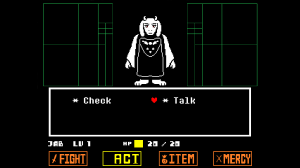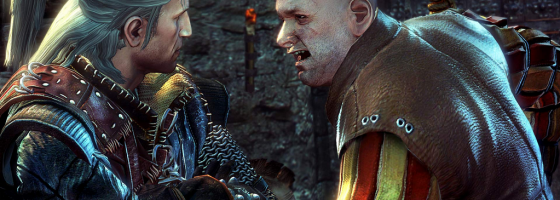A lengthy upcoming Perceptive Podcast got on the subject of storytelling in video games. Over the years, we’ve seen games try to pull the player into the world and the story. For the most part, they’ve all failed in one way or another. On our cast, we talked about how people get pulled into stories, and that led to talking about another way to write video game stories.
Set Morality:
The basic way of trying to pull players into the gamespace has been using morality. Whether it’s light side/dark side, good/evil, hero/jerk, so many games have used this. We’ve talked about this several times in the past about the problems with morality, but we’ll quickly recap.
Morality is a fixed element: We all know what’s good or bad. Because of that, choices in video games that are around morality tend to be one-sided. Either the good side will be made to be superior for the lesson that good always wins, or being bad is better as the temptation.
This becomes even worse when you tie game mechanics to morality. The second you create min/max scenarios, any sense of morality falls apart for video games. We know that we’re playing a video game, and tying mechanics and game options just makes it a false choice.
Shocking:

The choice to kill or talk was interesting, but didn’t have any consequence unless you went full genocide
Thinking about Undertale and the genocide option, it’s really a false choice when it comes to morality. The problem is that it’s something that you have to go out of your way to do; meaning that story is coming second to gameplay.
Unless you go full genocide or not, the game’s structure and pacing were not altered. We’re not going to count endings, as they’re not changing the mechanics or the player’s experience.
The game calling out people for wanting to explore it comes off as slightly ham-fisted; a game is not real life, we’re allowed to look at everything in a game.
And “real life” is the other problem with morality. We all know how to behave in the real world and having choices that go against that can come across as shock value. If your character is nothing more than a psychopath, then all you’re doing is making a controversial game for controversy’s sake.
It’s the common issue cited when an entertainment medium throws in a rape scene to get a shock out of the audience. You have a violent act that’s only there to make a bad character worse that could have been omitted without changing the character.
In an earlier Critical Thought, I talked about how the stories that work with controversial themes are the ones that fully embrace it. The only way to embrace these themes is to move past the use of morality and get to the shades of grey.
Humanizing:
The stories that touch us are the ones that make us care for the characters. We have to connect to them in some way, or they’re just going to turn us off. In an earlier post, I talked about the challenge of writing characters like Dexter or Walter White.
They’re bad people, but you need to humanize them in some way, and that takes us back to our podcast. We talked about how the hardest choices are the ones that have no right answer. No matter what you choose, something is going to happen.
Instead of having a game that asks you to either kill or save someone, let’s make that choice personal. Imagine if you have to decide between killing someone, or having your hand chopped off. We’re now no longer talking about morality, but consequence.
Something bad is going to happen, but you need to decide which one you can live with. These kinds of “what would you do?” choices help to humanize characters. It’s how people started to root for Walter White in the start, and then to see how his choices would come back to bite him.
The hardest choices are when we have to make the best out of a bad situation; not simply deciding between the good or bad option.
No Right Answer:
We have already seen some games that have gone this route in their storytelling. The first Witcher was a good example of consequence storytelling. The player had to frequently pick between who to side with in arguments that would lead to people dying. No matter how the player decided to play, there was always going to be blood on their hands.
Tactics Ogre on the PSP was another great example, and one I’ve talked about before. The player had to decide who to side with during a war; once again, their choice was going to lead to innocent life dying.
When we see the reaction of our choice on the player and the people around us, it makes the story more personal.
Ultimately we return to the main point: That morality by itself doesn’t lead to personal stories in game design or storytelling in general. The world is not black and white, and neither are our choices.
If you want to make the player feel engaged and have their actions matter, focus on consequences, as that’s where we really see the impact.
If you enjoyed this post, please check out the Game-Wisdom Patreon Campaign. Your donations can help to keep the site going and allow me to add in more content. Follow me on Twitter @GWBycer, and check out daily video content on the YouTube channel.


